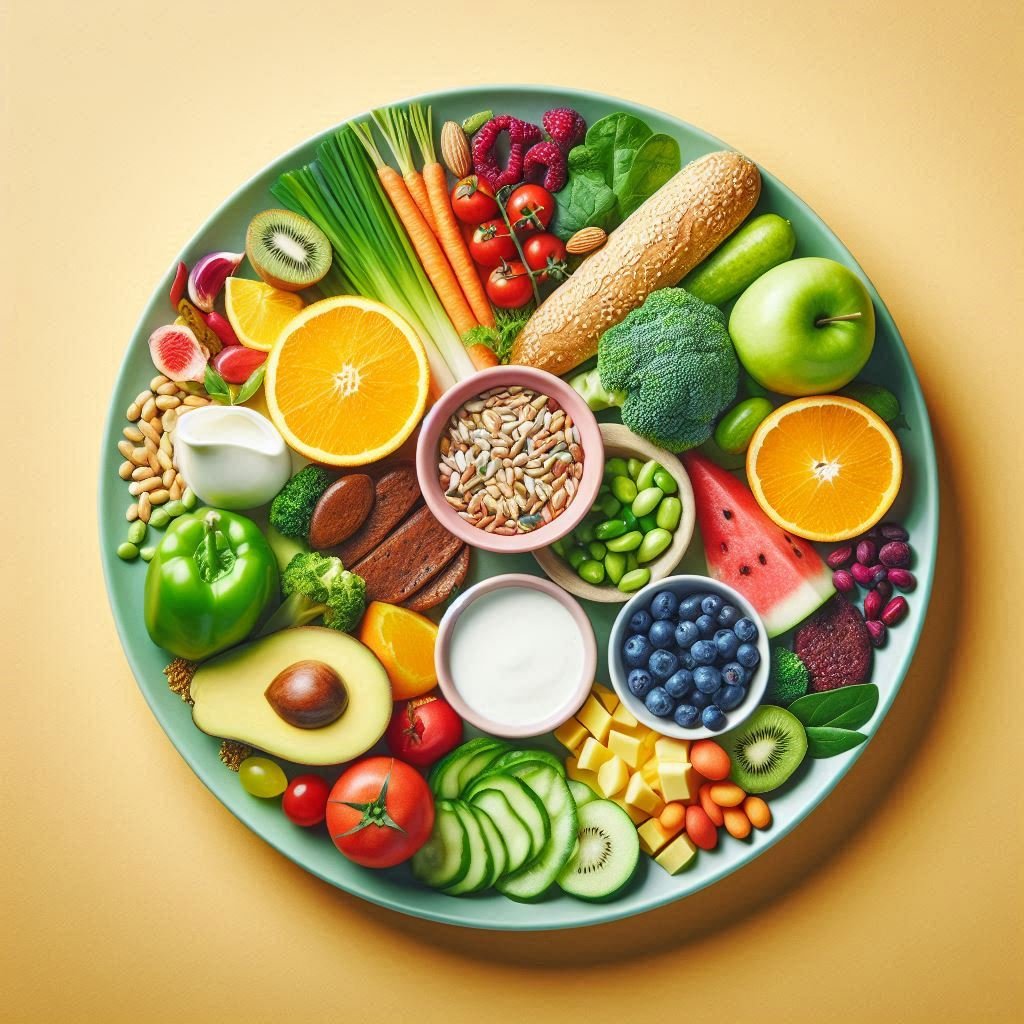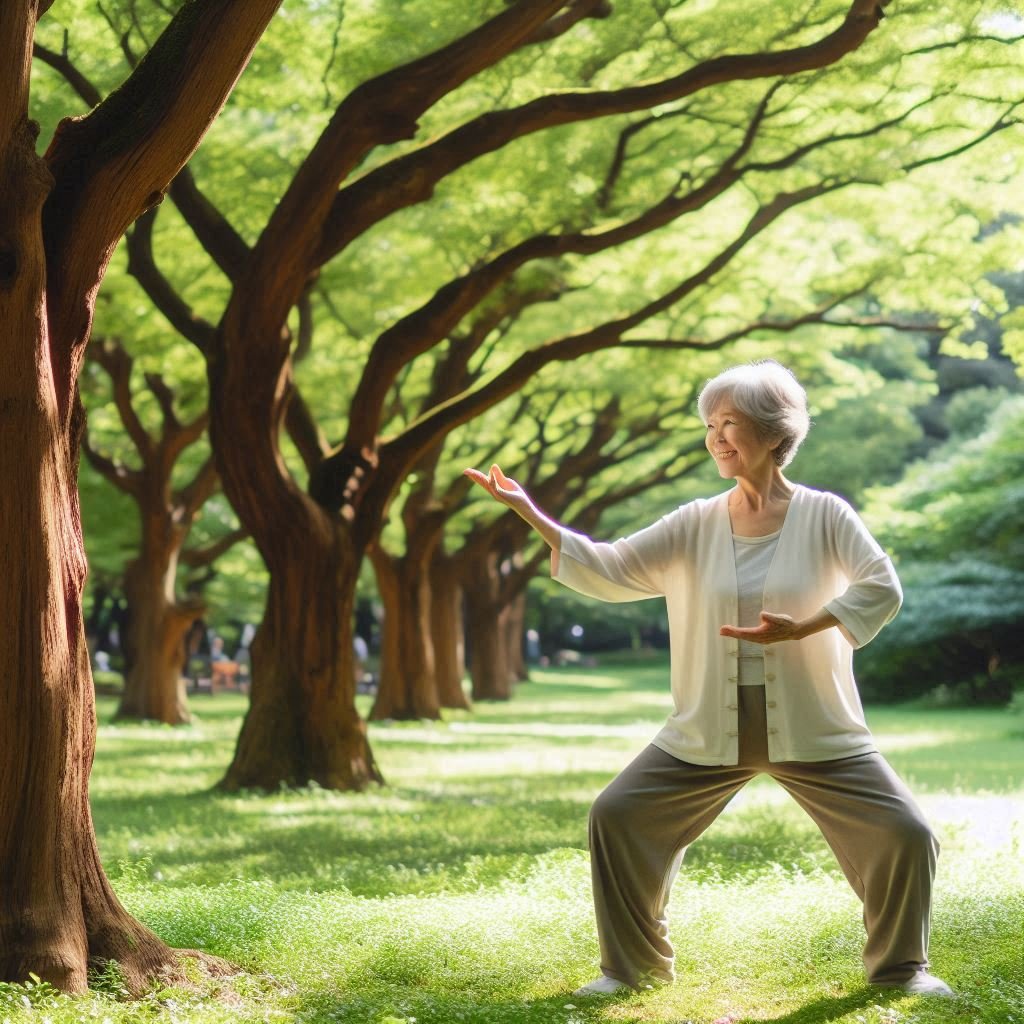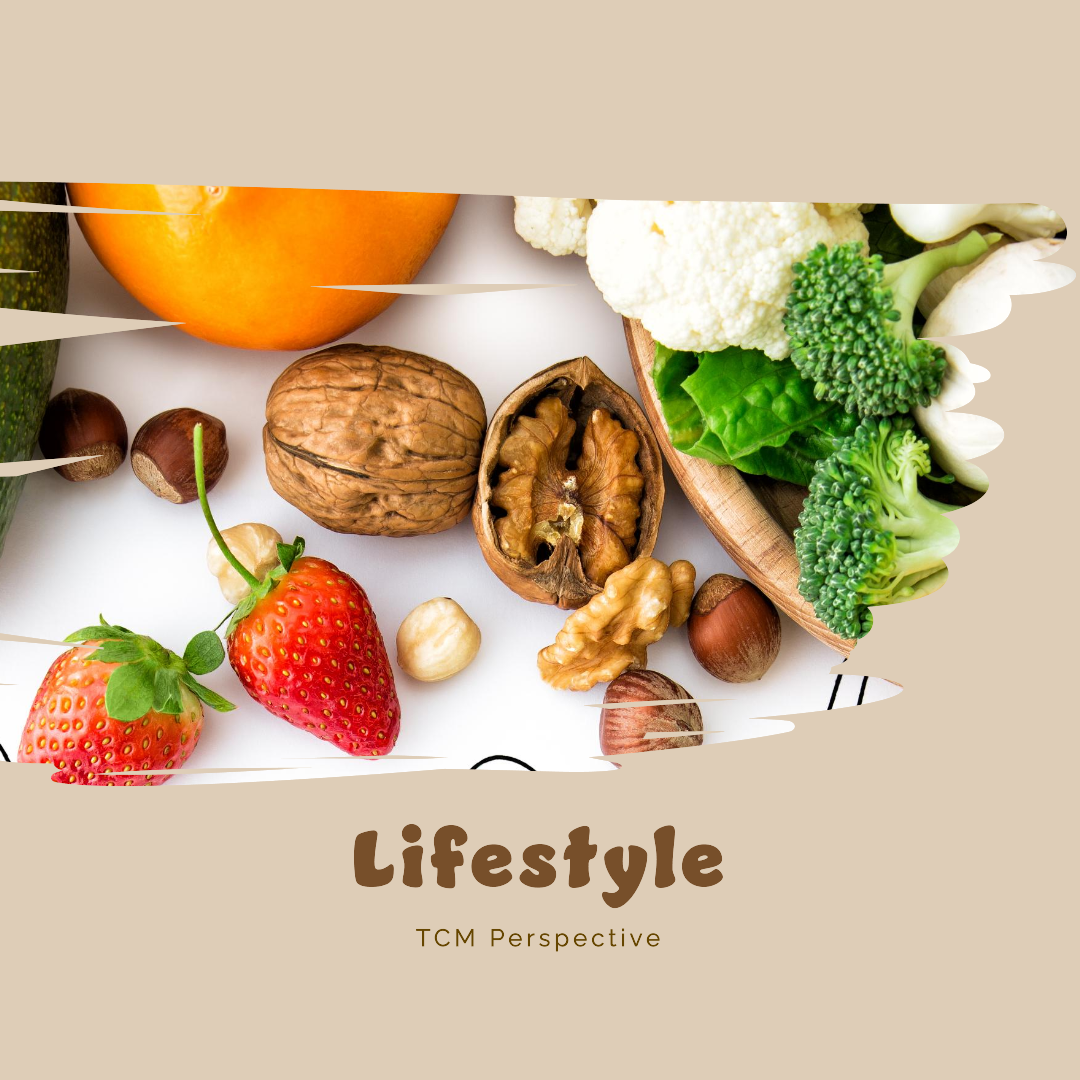TCM Lifestyle Perspective

Diet
- Balance: Foods should balance Yin and Yang elements, considering individual needs and the season.
- Flavor: Incorporating the five flavors (sour, bitter, sweet, pungent, and salty) helps maintain the balance of the corresponding organs.
- Temperature: Prefer foods at the appropriate temperature (warm or cold) according to the body’s condition and the season.
To have a healthy diet, you need a balanced diet with a variety of foods. In traditional Chinese medicine there are specific recommendations depending on your health status. Below are some recommendations depending on your condition:
| Condition | Dietary Recommendations |
|---|---|
| Qi Deficiency | Flavor: Sweet Nature: Warm Meals: Hot and complete meals Cereals/Grains: Rice, oats, lentils, corn, millet, hazelnuts, black sesame Vegetables: Carrot, chestnut, squash, fennel, potato, leek Meats: Lamb, beef, game, rabbit, goose, poultry, herring, octopus, salmon, trout Fruits: Cherry, date, fig, coconut, grape Others: Garlic, coriander, ginger |
| Yang Deficiency | Flavors: Sweet/Spicy Nature: Hot Preparation: Warming (cook, grill, fry). Combine with foods that tone Qi Cereals/Grains: Corn, hazelnut, walnuts, pistachio Vegetables: Chestnut, fennel, leek Meats: Lamb, beef, shrimp, lobster, poultry Fruits: Cherry, raspberry, chestnut, peach, grape Others: Almost all spices (basil, cinnamon, cloves, nutmeg, sage, thyme, rosemary, fennel, dill, chives) |
| Yin Deficiency | Flavor: Sweet. Additional: More salty/acid, less bitter/spicy Nature: Fresh Advice: Eat! Drink! Cereals/Grains: Wheat, spelt, corn, rice, tofu Vegetables: Seaweed, asparagus, spinach, beans, tomato, peas, yam Meats: Egg, oyster, mussel, crab, squid, rabbit, pork, cheese, milk, yogurt Fruits: Pineapple, banana, strawberry, pear, apple, mango, watermelon, blackberries, grapes, citrus fruits, fruit juices Others: Malt, honey, maple syrup |
| Blood Deficiency | Flavors: Sweet/Acid Nature: Warm/Neutral Foods: Fresh green leafy vegetables, grains, most meats, and legumes Preparation: Cook Cereals/Grains: Oats, glutinous rice (short grain), kidney rice, sesame, sunflower Vegetables: Adzuki beans, watercress, spinach, parsley, dandelion, beets, carrot, red cabbage Meats: Squid, oysters, mussels, octopus, sardines, marrow, beef, chicken, egg, liver, offal Fruits: Apricot, cherries, plum, red grape, figs Others: Vegetable juice, grape juice, hibiscus tea, red wine in moderation |
| Internal Dampness | Flavors: Bitter/Sweet/Salty Nature: Neutral, warm, hot Meals: Full breakfast, hot meals, cooked foods Cereals/Grains: Oats, corn, millet, rice Vegetables: Carrot, pumpkin, cabbage, squash, fennel, potato, peas, soy Meats: Lamb, beef, duck, venison, goose, chicken, veal, sea bass, carp, herring, mackerel, sardines Fruits: Date, fig, apple, grape, papaya, grape juice Others: Foods that drain dampness (bitter flavor: eggplant, basil, cocoa, coffee, lamb’s lettuce, etc.) |
Source: Compilation of Racette, PE: “Manger le Dragon” and Kastner, J.: “Chinese Nutrition Therapy”

Hydration
- Fluid Harmony: Adequate fluid intake helps maintain internal moisture balance and the circulation of Qi and blood.
- Water Temperature: Prefer warm water, especially in cold climates or for individuals with Yang deficiency.

Physical Exercise
- Qi Gong and Tai Chi: Movement practices that balance the flow of Qi (vital energy), promoting physical and mental health.
- Moderation: Exercises should be performed in moderation, avoiding excesses that can deplete Qi or cause injury.

Sleep
- Natural Rhythm: Respect the circadian rhythm by going to bed and waking up with natural light and darkness cycles.
- Quality of Sleep: Deep and restful sleep is essential to restore Yin and Yang and revitalize Qi.

Stress Management
- Emotional Balance: Practices like meditation, acupuncture, and herbal medicine help balance emotions and reduce stress, preventing imbalances in the Zang-Fu organs.
- Mind-Body Connection: Relaxation and mindfulness techniques promote harmony between the body and mind, essential for overall health.

Hygiene
- Regular Baths: Keeping the skin clean helps regulate lung function and Qi circulation.
- Massage: Self-massage and professional massage (Tui Na) promote blood circulation and Qi distribution.

Environment
- Feng Shui: Organizing living space to promote the harmonious flow of Qi, positively influencing health and well-being.
- Fresh Air: Ensure good ventilation to renew Qi and avoid the stagnation of harmful energies.

Seasonal Cycles
- Seasonal Adjustments: Adapt dietary habits, clothing, and daily routines according to the seasons to support the health of the organs associated with each season.

Connection with Nature
- Harmonization with the Natural Environment: Spending time in nature helps balance Qi, strengthen organs, and promote mental peace.
Adopting these lifestyle habits according to the principles of traditional Chinese medicine can help maintain the balance of the body and mind, promoting holistic and preventive health.
